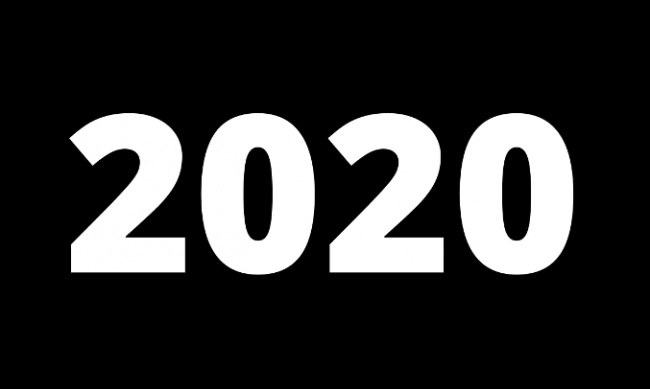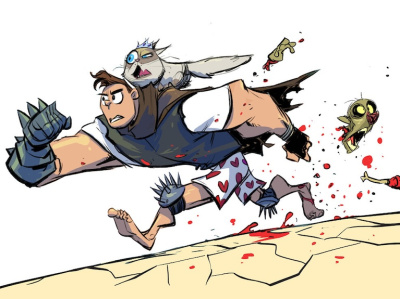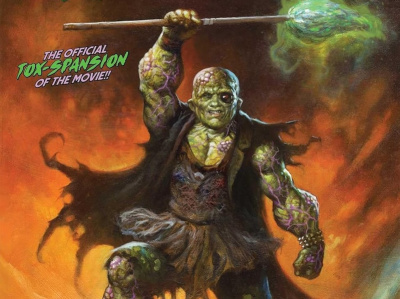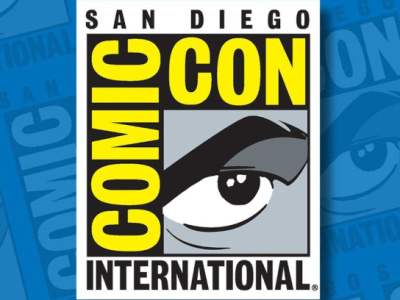I wish this were a harder column to write. Unfortunately, to paraphrase the Chinese proverb, we live in interesting times, and 2020 was rich in the kind of news we could all do without. Here are some of the big stories. Most, but not all, are related to the Big Germ. And believe it or not, a few point to signs of hope for a better 2021.
Distribution in Disarray. For decades the industry relied on a single distributor to handle the shipment and packaging of comics from dozens of publishers to several thousand independent retailers. For all the complaints that Diamond gets, it has generally managed to uphold high standards of performance in a thankless role. One reason Diamond stood alone for so long is that it is nearly impossible to make money with only a slice of the business; others have investigated getting into comics distribution over the years and run screaming.
The problem with a system with a single point of failure, though, is when that point fails. On March 23, as the pandemic was heating up, Diamond announced it was shutting down its warehouses to protect the health of its workers (see "Diamond Halting Distribution of New Product"). The shutdown continued for seven long weeks until May 20. That move left publishers, retailers and consumers scrambling. Efforts to shift temporarily to digital distribution for new products, which would have helped creators and publishers, met with stiff resistance from retailers.
Once the distribution system struggled back to its feet, it was hit with another body blow over the summer when DC, which was already showing signs of a frayed relationship with Diamond, announced on June 5 that it was cutting them out completely (see "DC Cutting Off Diamond") and moving their business to two new distributors for its periodicals, Lunar and UCS, both of which have ties to retailers. To say that was unwelcome news to retailers already stretched thin by business discontinuities and other pressures was an understatement. And then, in October, DC announced UCS was out of the picture at the end of the year (see "No DCS Through USC After EOY").
Where does this leave retailers, Diamond and other publishers? To be continued, in what is sure to be a major story in 2021.
DCeased or DCentered? Speaking of DC… yeah, there was some news there too. It wasn’t necessarily COVID-related, though it might be some kind of contagious brainworms circulating in the executive suite of AT&T.
To give you a sense of how much has happened this year, only 11 months ago, Dan DiDio was still co-publisher at DC and the company was hyping its upcoming 5G initiative. Then, on February 24, the axe fell (see "Dan DiDio Out at DC") – itself not an entirely unexpected development. But what followed was a massive restructuring that saw the company lose some of its most experienced business and editorial staff (see "DC Implosion – Major Staff Cuts"). The disruption was such that surviving co-publisher Jim Lee gave an interview where he said, "I don’t think [AT&T] wants us to stop publishing comics," among other disconcerting pronouncements (see "DC’s Future Isn’t What It Used to Be – But at Least It Still Has One (For Now)"). The blood wasn’t yet dry when management busted the axe out again in November to clear out some remaining staff with experience on the direct market side (see "WarnerMedia Layoffs Hit DC (Again)").
All that is… not encouraging. But the weird thing is, DC itself is having a pretty good year on the publishing side, with DCeased, Three Jokers, Dark Metal and others scoring well with fans on both the periodical and graphic novel side, and DC’s young readers program garnering praise and popularity in the trade book market.
Whether the company, now under new leadership unencumbered by decades of legacy, can build on successes like its mass market distribution, new digital platform, consolidated media strategy and good trade book program, is another one to watch in the year ahead.
Con-cellations and Con-tinuity. Of all the businesses that took it on the chin from COVID-19, few were as directly impacted as the live events industry. Again, cast your mind back to early March when, a week or two after C2E2, there was a blazing controversy about whether Emerald City Comic Con should take place given that Seattle was then the epicenter of the pandemic, and ReedPOP finally pulled the plug within a week of the scheduled start (see "ECCC Postponement Shakes the Fan Event Business to Its Foundations").
That turned out to be the first of a heretofore unending sequence of cancellations and postponements that reduced the billion-dollar fan convention industry to a series of Zoom meetings and vaguely social online events. The loss of San Diego Comic-Con and New York Comic Con, both big news generators for the publishing and entertainment industries, made it especially hard for media to generate buzz about new projects. And needless to say, the losses hit vendors particularly hard.
The rollout of the vaccines offers some hope that we will be allowed to gather in large-ish groups by late summer; some events have already announced dates for the end of 2021 (see "ReedPop Reschedules Two Major Shows Planned for March 2021"). And some of the innovations forced on us by circumstances might actually help the industry down the road (see "Winners and Losers from Six Months of Virtual Events"). But it’s hard to see how the impact of the COVID year will fade from either the public psyche or the ledgers of convention organizers for years to come.
Say Their Names. Comics have been embroiled in issues of representation and diversity for years, mirroring concern around those matters in society at large. This summer, when the death of George Floyd at the hands of police triggered an explosion of protests around the country, comics responded. Major publishers issued their own announcements, creators kicked off several pointed projects, librarians create a Black Lives Matter comics reading list, booksellers celebrated authors of color (see "#Blackoutbestsellerlists Encourages Purchase of Books by Black Creators This Week") and Damon Lindeloff’s "interpretation" of Watchmen grounded in America’s history of racism was a legitimate cultural touchstone when it aired this year on HBO.
Also, though it was overshadowed by subsequent events, the week that the Floyd video first came to light, former Marvel editor Christian Cooper was confronted by an angry white woman in Central Park who called the police on him for the crime of birdwatching, focusing attention on racial profiling and the kind of routine indignities faced by African-Americans "living while Black" in America. And in October, two former DC editors came forward to allege racism in earlier decades. This clearly remains an ongoing issue for the industry.
Retail Resilience. Comics retailers are no strangers to adversity, but this year pushed a lot of even the hardiest ones to the brink. We said goodbye to several longtime stores in 2020. Frankly it’s miraculous that the casualty lists were not longer.
Instead, we saw the business react with resourcefulness and resilience. Some retailers found ways to monetize Facebook video and social media to drive sales. Collectors chased back issues, driven by the popularity of the Key Collector App (see "Comic Back Issue Sales Are Up, But Market Has Changed"), and stores found ways to stay afloat using pick-up and delivery. The situation with Diamond and DC’s ongoing distribution drama probably hasn’t helped. Yet still, comic sales are not bad and the year could have been much worse (see "ICv2 White Paper – State of the Comics and Graphic Market In the Covid Year").
As the saying goes, "What doesn’t kill you makes you stronger." If that is true, comics next year will come bounding back like Superman.
Happy holidays and stay safe everyone! See you in 2021!
The opinions expressed in this column are solely those of the writer, and do not necessarily reflect the views of the editorial staff of ICv2.com.
Rob Salkowitz (@robsalk) is the author of Comic-Con and the Business of Pop Culture.

By Rob Salkowitz
Posted by Rob Salkowitz on December 21, 2020 @ 6:30 pm CT
MORE COMICS
Crowdfunding Campaign Launches in October, Followed by Retail Release
August 1, 2025
Vault will crowdfund the graphic novel on the Backerkit platform in October, then release it to retail.
With New Movie and Two Comics Treatments
August 1, 2025
With a movie premiering in August, a graphic novel anthology, and a new ongoing series, the Toxic Avenger is hot!
MORE COLUMNS
Column by Scott Thorne
July 28, 2025
This week, columnist Scott Thorne comments on the Edge of Eternities prerelease and on Magic: The Gathering news from the Hasbro earnings report.
Column by Rob Salkowitz
July 21, 2025
Columnist Rob Salkowitz lays out the Comic-Con panels of interest to industry professionals, current and aspiring creatives, educators, librarians and retailers.








